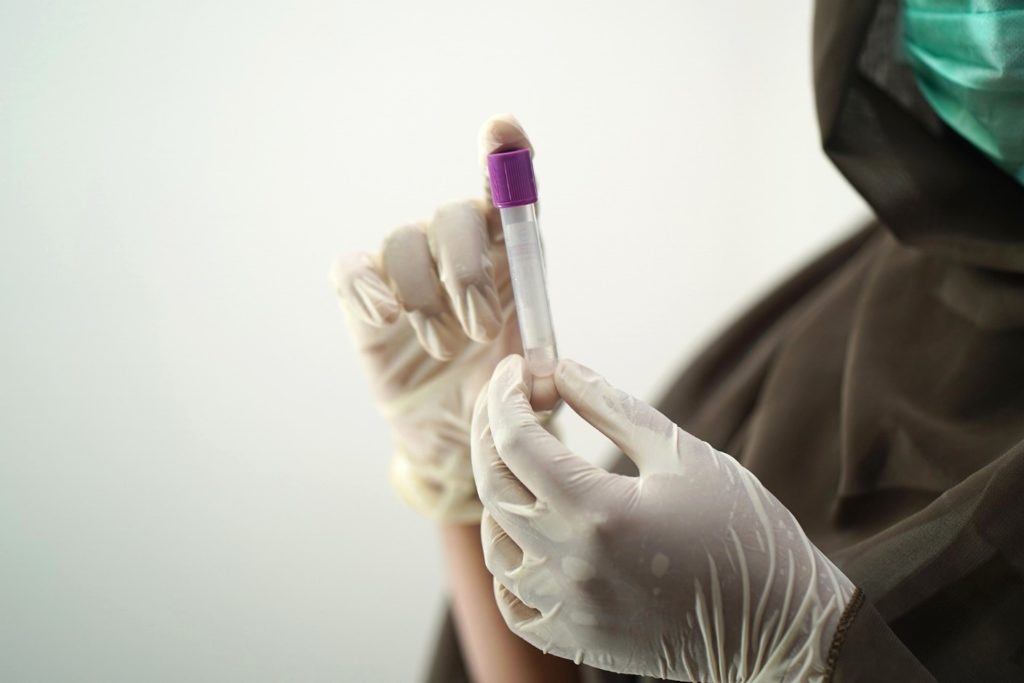Researchers at Imperial College London recently discovered the presence of autoantibodies in the blood of long COVID patients, opening up the possibility for the condition to be diagnosed with a simple blood test.
The autoantibodies were found exclusively in the blood of patients with long COVID and not in the blood of people who had recovered quickly from the infection, or who did not test positive for it.
While long COVID is not completely understood, it presents with symptoms that can persist weeks and months after initial infection. These include fatigue, shortness of breath, headaches and muscle pain.
The presence of autoantibodies unique to long COVID suggests an autoimmune response during infection. In contrast to antibodies that fight off foreign pathogens, autoantibodies are formed when the body mistakenly reacts to its own tissues and organs. Autoantibodies have been linked to autoimmune conditions such as Grave’s disease, arthritis and some cases of myalgic encephalomyelitis/chronic fatigue syndrome (ME/CFS).
The researchers are hopeful that their findings could be the first step towards a point-of-care test for long COVID. There is currently no diagnostic test for the condition.
Related: WHO Calls on Roche and Regeneron to Lower Costs for Life-Saving COVID-19 Treatment
Imperial College London professor of immunology Danny Altmann, who is leading the research, said in an article from the BBC, “I’m famously optimistic, so I’d hope that within six months we’d have a simple blood test that you could get from your GP.”
He also thinks it could have “quite a big impact for people who don’t feel they’ve managed to convince their GP or accessed specialist care because instead of being my word against yours, it has a diagnostic test.”
Current estimates show that approximately 20 to 25 percent of people are likely to experience symptoms of COVID-19 that last more than eight weeks.
It is actually possible to predict who may develop long COVID based on very early signs of disease. The more different symptoms a person experienced within the first week of illness, the more likely they were to develop long COVID. Researchers at King’s College London used this information, collected through the COVID Symptom Study app, and together with age, gender and body mass index, could accurately predict who is most at risk of developing long-term symptoms.
Long COVID-19 Autoantibodies
In the pilot study, the scientists compared the blood of dozens of people and found autoantibodies that were not present in individuals who recovered quickly, or those who never tested positive for SARS-CoV-2.
Prof Altmann believes the autoantibodies may be responsible for causing symptoms of long COVID. However, there could be other plausible reasons, he says. For example, the virus could persist in the body for some people, while others may have immune system related problems.
The study is still at an initial stage, which is why the sample size was small and can be scaled up as it progresses.
Despite much remaining unknown about long COVID, Prof Altmann says one of the things they know for certain is that long COVID can arise from any form of the infection — asymptomatic, mild or severe.
This raises concerns as the UK is currently battling a surge in COVID-19 infections amid relaxation of lockdown restrictions. Prof Altmann said, “if we’re heading into a phase of 100,000 cases per day in the coming months and we’re saying that 10 percent to 20 percent of all infections can result in long COVID, I can see no certainty that we’re not brewing those long COVID cases despite having a vaccinated population.”
The researchers are remaining cautiously optimistic, saying that while they’re excited about the early findings, it is important to continue to research other causal factors of long COVID, which includes addressing the different types of post-COVID syndrome, in order to properly diagnose and treat the disease.
The prevalence of long COVID among fully or partially vaccinated individuals is also not yet known. Long COVID can affect people of all ages and genders, including children, healthy people with no underlying medical conditions and those that experienced mild symptoms when they contracted COVID-19.












Join or login to leave a comment
JOIN LOGIN